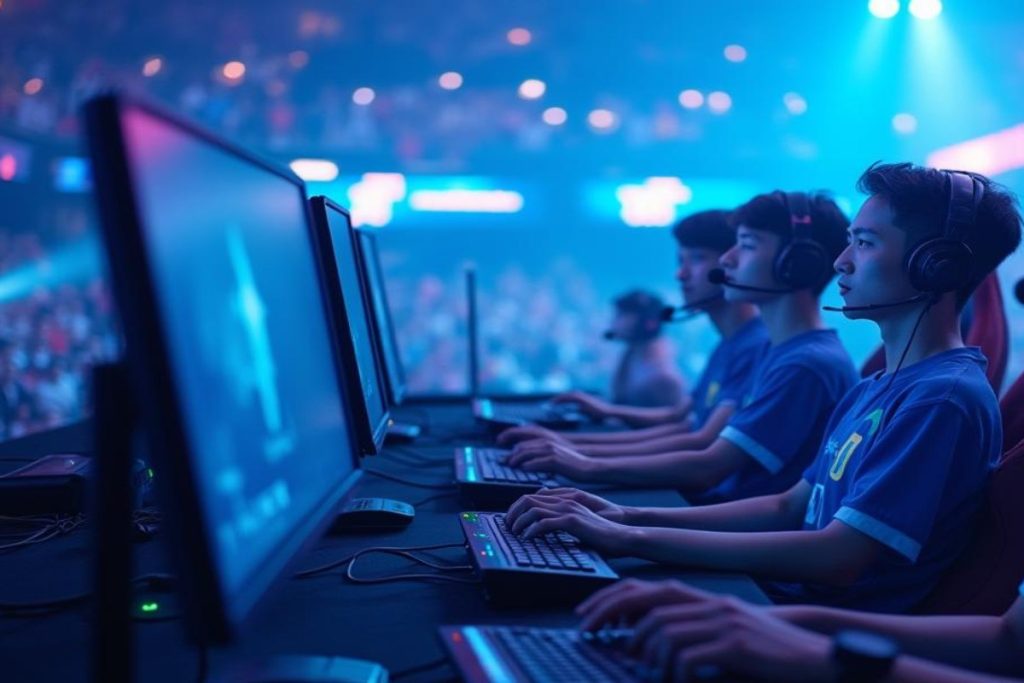Computer Entertainer magazine represents a vital piece of the puzzle in the historical landscape of American video games. As one of the first gaming magazines in the United States, it provided insights and reviews during a transformative period in the history of video games, particularly in the mid-’80s. The Video Game History Foundation’s recent efforts to digitize and preserve the complete run of Computer Entertainer magazine grant enthusiasts and researchers unparalleled access to invaluable content on video game preservation and American gaming history. From its unique perspective as a retailer-run publication, this magazine reveals essential details about classic titles like The Legend of Zelda and Super Mario Bros., marking its significance in the digital archives of gaming. By making Computer Entertainer freely available, the Video Game History Foundation not only champions the preservation of gaming culture but also ensures that the legacies of these early digital media remain alive for future generations.
The digital revival of Computer Entertainer magazine is a remarkable initiative that underscores the importance of safeguarding the narratives entwined with early gaming experiences. This pioneering periodical played a crucial role in documenting the evolution of video gaming, particularly during a time when many other publications faltered. The Video Game History Foundation’s mission to digitize such historical resources reflects a broader commitment to archiving the stories and reviews that shaped American video game history. By facilitating access to these once-obscure gaming magazines, they are enriching the digital landscape with essential knowledge for both enthusiasts and newcomers. As we explore the chronicles of video games, appreciating these foundational texts not only enhances our understanding of game preservation but also keeps the spirit of early gaming culture thriving.
The Legacy of Video Game Preservation
Video game preservation is essential for maintaining the historical significance of the medium as it evolves. As technology advances, many classic games and their associated materials, including magazines like *Computer Entertainer*, become at risk of being lost forever. Organizations like the Video Game History Foundation play a crucial role in this process, helping to archive not only the games themselves but also the broader context in which they were created and enjoyed. The preservation of these materials ensures that future generations can appreciate the innovations and cultural impacts of early video games.
The efforts to preserve video game history include digitizing and sharing rare documents, magazines, and digital archives. This includes the meticulous work of organizations that focus on collecting and making accessible the rich history of American video games. By making resources like *Computer Entertainer* available for free, the Video Game History Foundation allows a wider audience to explore the industry’s past, offering insights into early gaming culture that would otherwise remain obscure.
Importance of *Computer Entertainer* in Gaming History
*Computer Entertainer* is uniquely positioned in the timeline of American video game history, serving as a window into the world of console gaming during the pivotal mid-1980s era. This magazine not only provided reviews of now-classic games like *The Legend of Zelda* and *Super Mario Bros.*, but also chronicled the gaming landscape that emerged after the 1983-84 video game crash. It is one of the few remaining records that showcase how gaming magazines reported on trends, new releases, and the growing culture around video games, thus making it an invaluable resource for historians and enthusiasts alike.
The inclusion of *Computer Entertainer* in the Video Game History Foundation’s collection demonstrates the importance of documenting diverse voices in the gaming narrative. By spotlighting the work of women like Marylou Badeaux and Celeste Dolan, this publication brings forward perspectives that have historically been underrepresented in gaming discussions. The magazine’s history underscores how pivotal publications contributed not just to the spread of gaming knowledge, but also to the shaping of an inclusive community that supported and celebrated gaming.
The Role of Gaming Magazines in Digital Archives
Gaming magazines have played a pivotal role in providing a narrative to the evolution of video games, and now they serve as vital components of digital archives. As traditional print media have transitioned to online formats, the archiving of these magazines has become essential for preserving their content and context. Digital archives allow easy access to historical materials that can be used for research, education, and nostalgia, contributing to the broader understanding of video game history.
The creation of accessible resources through digitized archives, like the work of the Video Game History Foundation, enables scholars and fans alike to explore the impact and evolution of the gaming industry. By examining publications such as *Computer Entertainer*, researchers gain insight into not only game reviews but also the cultural conversations surrounding gaming during its formative years. This analysis of gaming magazines enriches our understanding of American video game history and the relationship between gamers and the media.
The Impact of the Digital Millennium Copyright Act on Preservation
The Digital Millennium Copyright Act (DMCA) plays a crucial role in the ongoing preservation efforts within the gaming community. Despite the attempts made by organizations such as the Video Game History Foundation to secure exemptions for libraries to share digital access to out-of-print games, these efforts have often met with challenges. The refusal of support from industry lobby groups has hindered progress, leading to significant barriers that slow down efforts to archive and make available important materials, including classic gaming magazines.
As we navigate the complexities of copyright laws, the need for reform that recognizes the importance of preservation is paramount. The inability to share certain works limits the scope of research and education about video game history, creating gaps in our understanding of the evolution of the medium. Advocates argue that updated legislation should balance the rights of creators with the cultural benefits of preserving the history of video games, ensuring that future generations can enjoy and learn from the rich tapestry of gaming.
Women in Gaming Journalism: A Historical Perspective
The story of *Computer Entertainer* is not just one of video game preservation; it also highlights the vital contributions of women in gaming journalism. Co-edited by Marylou Badeaux and Celeste Dolan, this magazine represents an essential chapter in the history of gaming and showcases the roles women have played in the industry. Their leadership in a heavily male-dominated field is a significant milestone, illustrating how women’s voices have influenced the narrative of video gaming.
Historically, women in gaming have often been overshadowed, with their contributions to journalism and game development frequently overlooked. By acknowledging the pioneering work of magazines like *Computer Entertainer*, we can better understand the diverse perspectives that have shaped gaming culture. This recognition not only honors the past but inspires future generations of women to pursue careers in gaming and journalism, fostering a more inclusive industry.
The Future of Video Game Preservation Initiatives
As technology continues to evolve, so too does the methodology behind video game preservation efforts. Organizations such as the Video Game History Foundation are at the forefront of adopting innovative techniques for archival processes, ensuring that important materials, including magazines like *Computer Entertainer*, remain accessible for future study. Advancements in digitization efforts, such as higher-quality scanning technologies, allow deeper access and a better representation of historical materials.
Looking forward, the future of video game preservation holds promise as awareness grows around the importance of retaining gaming history. Collaborative initiatives between museums, academic institutions, and advocacy groups are vital in driving this mission forward. As gaming continues to develop as a cultural phenomenon, dedicated efforts to preserve its past will foster a greater understanding of its significance in shaping entertainment, technology, and social dynamics.
The Rise of Digital Archives in Preserving Gaming History
Digital archives have revolutionized how we preserve and access information about the history of video games. The ability to digitize publications such as *Computer Entertainer* allows them to be stored and viewed far beyond their original print run. This access removes geographical barriers and allows a global audience to appreciate classic games and their associated culture, ensuring that critical pieces of American video game history remain alive and familiar.
The rise of digital archives can also be credited with sparking increased interest among new generations of gamers. By providing access to historic gaming materials, digital platforms create opportunities for storytelling that connects individuals to the past. These resources also serve as a foundation for researchers studying the industry, enabling them to present findings that inform the ongoing discussions about video game culture and its implications.
Challenges in Declaring Video Game Preservation a Priority
Despite the established importance of video game preservation, there are still significant challenges in pushing this agenda to the forefront. Many stakeholders, including publishers and developers, may not see the long-term value of preserving past works or may prioritize current projects over archiving efforts. This mindset can lead to a reluctance to support initiatives like the Video Game History Foundation, which aim to keep the industry’s history alive.
Additionally, the varying attitudes towards preservation across different regions and markets complicate the global efforts needed for a comprehensive approach. With differing legal frameworks and priorities, it becomes difficult to create unified strategies that resonate internationally. Advocates for preservation are pushing for broader recognition of how vital preserving our digital and printed gaming history is not only for historical accuracy but for ensuring that the legacy of video games endures.
Gaming Preservation: Intersection of Culture and Technology
The intersection of gaming preservation with cultural and technological advancements is a fascinating area that showcases the complexity of archiving video game history. As technology continually evolves, it reshapes how games are created and experienced, thus altering the landscape of what is deemed historically significant. Understanding this relationship is crucial for organizations that focus on preservation and those interested in studying the impact of technology on gaming culture.
Cultural shifts in gaming also influence preservation priorities. As new generations of gamers emerge, they bring diverse perspectives and interests that diversify the types of games and gaming materials that are remembered and valued. Recognizing this evolving narrative is essential, as it highlights the ongoing relationship between culture and technology within video gaming, reminding us that preserving the history of video games is not just about saving files—it’s about safeguarding memories, identities, and the shared experiences that have shaped gaming communities.
Frequently Asked Questions
What is *Computer Entertainer* magazine and why is it significant in video game history?
*Computer Entertainer* is one of the first American video game magazines, notable for providing unique insights into the history of video games during the mid-1980s. It is particularly significant because it survived the 1983–84 industry crash, making it one of the only reliable sources for American reviews and release dates of classic games like *The Legend of Zelda* and *Super Mario Bros.*.
How did the Video Game History Foundation acquire *Computer Entertainer* magazine for its digital archives?
The Video Game History Foundation acquired the complete run of *Computer Entertainer* from Marylou Badeaux, one of the magazine’s original editors. After digitizing the collection, the foundation also sourced additional issues from game historian Leonard Herman and secured intellectual property rights, allowing them to make the magazine available for free in their digital archives.
What can I find in the digital archives of *Computer Entertainer*?
The digital archives of *Computer Entertainer* include the entire run of the magazine, which contains reviews, articles, and insights on many classic video games from the 1980s. These archives provide a comprehensive look at American video game history and can be accessed for free through the Video Game History Foundation.
Why is *Computer Entertainer* considered an important source for American video game history?
*Computer Entertainer* is considered crucial for American video game history as it offers rare documentation and reviews of games released during a pivotal time in gaming. It was one of the few magazines to persist after the industry crash, thus serving as a valuable record of the era’s game releases and the gaming community.
How does the preservation of *Computer Entertainer* magazine contribute to the conversation about video game preservation?
The preservation of *Computer Entertainer* magazine highlights the ongoing efforts to archive and celebrate video game history. It demonstrates the importance of maintaining access to historical gaming content and encourages awareness and actions towards broader video game preservation initiatives, ensuring that future generations can engage with past gaming culture.
What impact did *Computer Entertainer* have on the gaming journalism landscape?
*Computer Entertainer* not only helped shape early gaming journalism by providing credible reviews and insights into video games but also marked a significant milestone as one of the earliest magazines co-edited by women, showcasing diverse voices in gaming media. Its legacy continues to influence contemporary gaming magazines and journalism.
How can I use the content from *Computer Entertainer* magazine found in digital archives?
Content from *Computer Entertainer* can be used freely under a Creative Commons Attribution license, allowing individuals to leverage the material for personal projects, research, or educational purposes, as long as appropriate credit is provided.
What other resources does the Video Game History Foundation provide related to video game preservation?
Besides *Computer Entertainer*, the Video Game History Foundation offers a variety of resources including other gaming magazines, art books, and historical documents that chronicle the evolution and impact of video games. Their digital archive serves as a valuable repository for research and education on American video game history.
| Key Point | Details |
|---|---|
| Expansion of Preservation Efforts | The Video Game History Foundation has made the complete run of *Computer Entertainer* free to the public, enhancing its digital library. |
| Historical Importance of *Computer Entertainer* | *Computer Entertainer* is one of the first American video game magazines, providing valuable insights and reviews from the mid-1980s. |
| Unique Source of Gaming History | This magazine survived the 1983-84 industry crash, making it a key resource for classic game reviews and American release dates. |
| Notable Contributors | Co-edited by sisters Marylou Badeaux and Celeste Dolan, marking it as the first console video game magazine run by women. |
| Digitization Efforts | The foundation digitized copies of the magazine, improving quality after obtaining additional material from the original editors’ collection. |
| Copyright and Accessibility | Acquisition of intellectual property rights allows free access to *Computer Entertainer*, released under a Creative Commons license. |
Summary
Computer Entertainer magazine, now accessible for free through the Video Game History Foundation, is pivotal in preserving the rich history of gaming. The foundation’s efforts not only honor the legacy of early video game journalism but also provide crucial resources to scholars, gamers, and enthusiasts alike, ensuring that the narrative of video games continues to be explored and celebrated.


